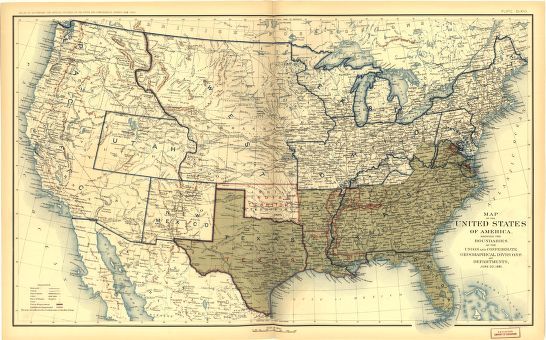 At a time when the Confederacy’s fortunes seem to be on the upswing, this week’s North Carolina Baptist Biblical Recorder publishes a commentary on “Providence and this War.”
At a time when the Confederacy’s fortunes seem to be on the upswing, this week’s North Carolina Baptist Biblical Recorder publishes a commentary on “Providence and this War.”
You launch a loose plank on the swollen river, and from the bank watch patiently its course, as it drifts along–but you cannot guide it. It is not that God casts us forth upon the stream of time. That stream flows, or falls, as He impels or restrains it. He has power, at will, to check its current, or stir its stagnation; and our course is as He orders it.
The misleading appearances of the present life may hide this Divine superintendence from us. But amid all the fluctuations of earthly things, the eye of faith discerns, the heart of love adores, the predominance of plan over accident–the march of a Providence at harmony with itself–the slow but certain development of the counsel that shall stand forever. “In the centre of the world whirlwinds, verily now, as in the oldest days, dwells and speaks a God.”
It is not true, therefore, (as one of our poets phrases it,) that we “wander after pathless Destiny.” Providence rules and overrules in all things; and our seeming wanderings are but the paths which He has marked out for us.
This holds good, no less in the case of nations, than of individuals. Whatsoever happens to a people was written aforetime on high. Truer words were never spoken than when [Major Joseph] Hawley, a patriot of the American revolution, in reference to the hazards of a war for independence, said, “We must put out to sea–Providence will bring us into port.” Our fathers would never have reached the haven, but for Divine guidance. And with that guidance, what have we to fear? The sky may be black with cloud, the air rent with storm, the ocean set with rock; and night falling over the terrors of the scene, may render them only the more terrible by shrouding them from our view and putting imagination upon its fantastic work. Yet with Providence at the helm, no shipwreck can befall us; and it is a weakness that should shame womanhood to apprehend it.
There is nothing in these sentiments at war with real military or political science. To speak only of the former:–[Arthur Wellesley, 1st Duke of] Wellington, who stands among the foremost of generals, whether of ancient or modern times, in one of the three letters by him from Waterloo, said: “I have escaped unhurt; the finger of Providence was on me!” Amid the reeking carnage of that field, where almost beyond parallel, “red battle stamped his foot and nations felt the shock,” he realized that the life on which he hung the issue of the dreadful conflict, itself hung on the sheltering care of Providence. And what was true there, for him, is everywhere, and for all.
May our people be animated by the spirit which induced Richard Boyle, “generally called the great Earl of Cork,” to adopt as his motto in life and his epitaph in death, the sentence–“the providence of God is my inheritance!” If, as with the heart of one man, we made this our motto, the nation will never have an epitaph. We shall abide a free Confederacy forever.
A bold vision of a long-standing, powerful, Christian Confederate empire undergirded by African slave labor is not uncommon among Southern intellectuals, religious or otherwise.
Source: “Providence and this War,” Biblical Recorder, September 10, 1862 (link)


